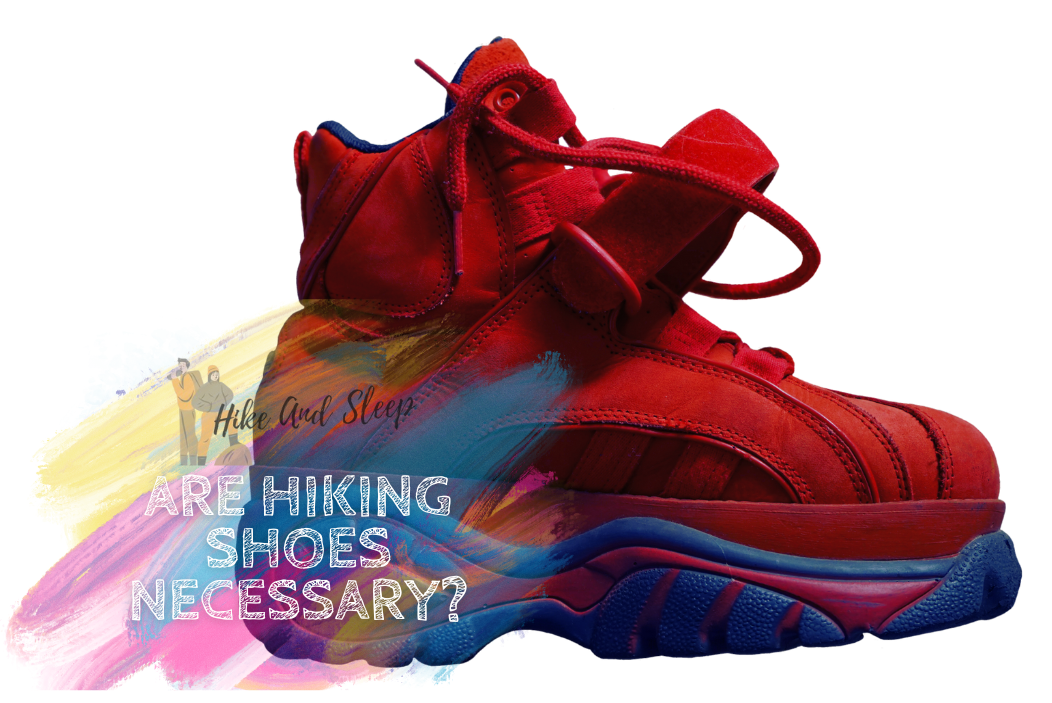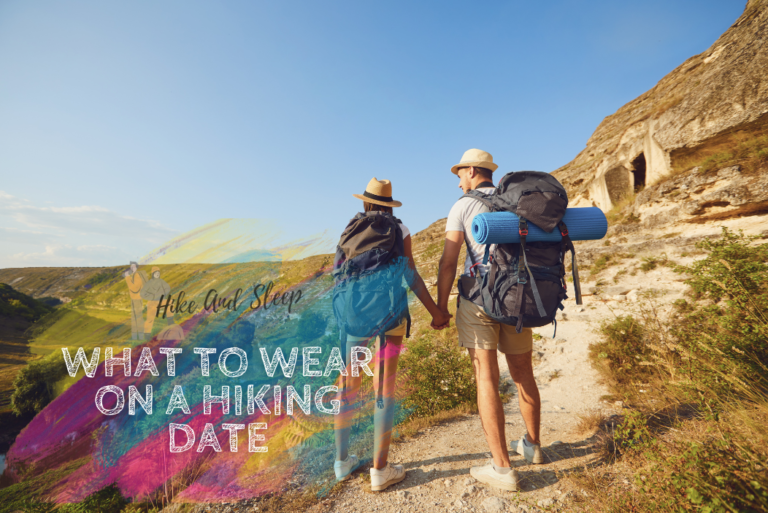Are Hiking Shoes Necessary?
In a world where freedom and exploration reign supreme, it may seem ironic to question the necessity of hiking shoes.
Yet, for those who seek to venture off the beaten path, the importance of proper foot support cannot be understated.
Whether you are planning a hiking or a backpacking trip, this article delves into the reasons why investing in a reliable pair of hiking shoes is not only wise but essential for protecting against injuries, enhancing stability, and ultimately, elevating your hiking performance.
Table of Contents
Key Takeaways
- Hiking shoes provide stability and support to prevent injuries and promote foot health.
- Hiking shoes protect against injuries and hazards such as twisted ankles and blisters.
- Hiking shoes enhance stability and traction on various terrains, reducing the risk of slips, falls, sprains, and twists.
- Hiking shoes are essential for weather and climate considerations, providing insulation, breathability, and protection from wet conditions.
Are hiking shoes necessary: The Importance
One of the most important factors in hiking footwear is providing proper foot support. When it comes to foot health, having the right shoes can make all the difference. Hiking shoes are designed to provide stability and support to your feet, helping to prevent injuries and promote overall foot health.
Shoe technology has come a long way in recent years, with advancements aimed at improving foot support and comfort. Hiking shoes are now equipped with features such as cushioning insoles, arch support, and shock-absorbing soles. These elements work together to reduce the impact on your feet while walking on uneven terrain, providing a more comfortable hiking experience.
Proper foot support is essential for maintaining good posture and balance during a hike. It helps to distribute your body weight evenly and reduces the strain on your feet, ankles, and knees. Without adequate support, you may experience foot pain, fatigue, and even long-term foot problems.
When choosing hiking shoes, it is important to consider your foot type and any specific foot issues you may have. Consult with a professional shoe fitter who can guide you toward the right shoes for your needs. Investing in proper hiking footwear will not only enhance your hiking experience but also protect your foot health in the long run.
Protection Against Injuries and Hazards
Hiking shoes provide both protection against injuries and hazards, ensuring the safety of your feet while on the trail. When venturing into the wilderness, it is crucial to prioritize your well-being, and proper footwear plays a significant role in that.
One of the most common injuries hikers face is twisted ankles. The rugged terrains and uneven surfaces can easily cause missteps, leading to sprains or even fractures. However, hiking shoes are designed with ankle support features such as high collars and sturdy soles, reducing the risk of such injuries.
Additionally, blisters are another concern when it comes to hiking. Long hours of walking or hiking in ill-fitting shoes can lead to painful blisters, making each step unbearable. Hiking shoes are specifically designed with cushioning and padding to provide comfort and prevent friction, thus avoiding blisters.
The durable materials used in hiking shoes also protect your feet from sharp rocks, thorns, and other potential hazards you may encounter on the trail.
Enhancing Stability and Traction on Various Terrains
To ensure optimal stability and traction on a variety of terrains, hiking shoes provide hikers with the necessary grip and support required for safe and confident exploration. When hiking on uneven or slippery surfaces, such as rocky trails or muddy paths, having the right footwear can make all the difference in preventing slips and falls.
Hiking shoes are designed with features that improve balance and prevent accidents. One of the key components is the outsole, which is made of a durable and rugged material that provides excellent traction.
This allows hikers to confidently navigate through challenging terrains without the fear of losing their footing. The tread pattern on hiking shoes is specifically designed to grip the ground, whether it’s wet, dry, or muddy, ensuring stability and reducing the risk of slipping.
Furthermore, hiking shoes often come with additional stability features such as ankle support and cushioning. These elements help to stabilize the foot and ankle, minimizing the risk of sprains or twists. By providing a secure fit and proper arch support, hiking shoes enhance balance and reduce the strain on the feet and legs, allowing hikers to go further and explore with greater ease.
Weather and Climate Considerations
Taking into account the ever-changing weather conditions and varying climates, hikers must consider the impact these factors can have on their choice of footwear. Weather and climate play a significant role in determining the type of gear hikers should select for their outdoor adventures. Here are four essential considerations when it comes to weather and climate:
- Temperature: Hikers need to choose footwear that provides adequate insulation in colder temperatures and breathability in warmer climates. Insulated hiking shoes or boots are ideal for colder environments, while lightweight and breathable shoes are more suitable for hotter regions.
- Precipitation: If you frequently hike in wet or rainy conditions, waterproof hiking shoes or boots are essential to keep your feet dry and protected. These shoes have a waterproof membrane that prevents water from seeping in, keeping you comfortable and preventing blisters.
- Terrain: Different terrains require different types of footwear. For rocky or uneven surfaces, shoes with sturdy soles and ankle support are necessary. If you plan to hike on muddy or slippery trails, shoes with aggressive traction patterns will provide better grip and stability.
- Altitude: As you gain elevation, the climate and weather conditions can change dramatically. It is crucial to select footwear that can handle these changes, such as shoes with good insulation and breathability to accommodate temperature fluctuations.
Considering these factors will not only enhance your hiking experience but also ensure your safety and comfort on the trails. Remember, your gear selection should always align with your physical fitness level and the demands of the terrain you plan to explore.
Long-Term Benefits for Hiking Performance
Enhancing endurance and improving overall cardiovascular health are key long-term benefits that hikers can expect to experience through regular participation in the activity.
Hiking is a fantastic way to build stamina and increase cardiovascular fitness levels. The constant movement and varied terrain challenge the body, forcing it to adapt and become more efficient at using oxygen and nutrients. This, in turn, leads to enhanced endurance and improved cardiovascular health.
Regular hiking also provides an excellent opportunity to work on balance and stability. Hikers navigate through uneven terrain, requiring them to engage their core muscles and maintain equilibrium. Over time, this helps to strengthen the muscles responsible for balance. That eventually leads to improved stability and reduced risk of falls or injuries.
In addition to physical benefits, hiking also offers numerous mental and emotional advantages. Spending time in nature has been shown to reduce stress levels and improve mood. The peaceful and serene environment allows hikers to disconnect from the demands of everyday life and reconnect with themselves. This sense of freedom and tranquility can have a profound impact on mental well-being.
Recommendations
Here are some recommendations from our side that you might want to check out:
- Merrell Men’s Moab 3 Hiking Shoe – Overall Pick
- Merrell Men’s J035843W Moab 3 Water Proof – Best Seller
- NORTIV 8 Men’s Ankle High Waterproof Hiking Boots – Best Seller
- The Drop Women’s Caleb Shearling Hiking Boot – Best Seller
- Columbia Women’s Newton Ridge Plus Waterproof Amped Hiking Boot – Best Seller
- NORTIV 8 Women’s Lightweight Hiking Shoes Quick Laces Outdoors Sneakers – 10% Discount
Conclusion
In conclusion, it is pretty clear that hiking shoes are necessary for a successful and enjoyable hiking experience. They provide proper foot support, protect against injuries and hazards, enhance stability traction on various terrains, and consider climate conditions.
Without the right footwear, hikers risk discomfort, instability, and potential injuries. Just as a ship needs a sturdy anchor to navigate treacherous waters, hikers need hiking shoes as their reliable anchor to navigate challenging terrains.





